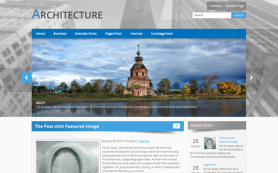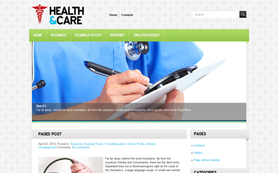Nowadays, businesses and brands no longer seem to exist without an online presence. Developing websites can be an exciting prospect, but there are a few things that would be wise to take notice of before you head into your task.
1. Research
It is inescapable that you need to research the website you want to create. For you to be able to know what functionalities to put into the website, you will have to find out what the users will expect from the site. Part of your research should include things such as what you expect to use the website for and what the website will be used for. During your research,make sure to utilize a VPN, you can learn more about VPNs in this Opera VPN review.
2. Strategizing
Once you have an overview of your web development goals and a clear picture of the purpose of the site, the next step is a strategy. This will include the actual structure of the interface as it connects to the backend. For this, you will need to draw up a detailed sitemap that will show how the website will work from the developer’s point of view. You will also need to make a wireframe to create a rudimentary visual aid of how the end-user of the site will see it as. It is also at this stage that one must select the framework and programming language that you will be using for your web development project.
3. Design
As the previous stage dealt with the building blocks of the website, the third step will have to do with the layout of the website. The insights gained during the research will be handy at this stage as you will need a plan that corresponds to the target users expectations of such a website. Creativity plays a huge role during this part of the development process. You will need to incorporate logos and appropriate colors. A feedback cycle with your customer should also be created so that you all agree what needs to be changed or kept.
4. Sourcing content
Once the design is a done-deal with the client, you may now delve into the content that will be on display to the site’s visitors. Written content that will fill the website will also entail editing and proofreading of the writings. It makes the process more manageable if you can get the material before the site is ready to be launched to prevent delays in between. You might want to read this Opera VPN review for more insights on this subject.
5.Coding
After all the prep work, it is now time to get into the code for the website. The graphics gathered earlier will now be used in the guided process of coding the website. The sitemap created during the strategizing period is what will soon be followed as one creates the pages for the site. Usually, the homepage is created first and then supported by the other additional pages on the site. As you will have already selected the framework of your choice, it is now easy to select the plugins you will need at this stage.
6. Testing
After all the coding process has been achieved, it will be time to carry out testing activities on the site. This way, the developer can discover any errors in their code and fix them to have a properly functioning website at the end of the process. You will need to make sure the site opens on all browsers as well. If satisfied, then the next thing under this step is to launch the website by way of uploading it to the server.
7. Maintenance
At this point, the site is up and available. For the seventh step, a lot of maintenance work is what is needed. If you are using an Opera VPN, this Opera VPN review will help you dodge the common pitfalls and keep everything in check. You need to make sure the server is always up for your website to be available. There is also a need to create a way to receive feedback from the users of your blog. This way if anything is not working correctly, you will be alerted as soon as possible. Keeping your website up to date will require you to take some security measures with your website.
Many web developers take advantage of the added protection VPNs to improve protection for their sites and their data. Depending on your VPN provider, you will be able to benefit in the following ways.
Have access to a secure network.
Hackers are known to exploit the use of insecure networks to gain access to your computer. If you are going to be developing a website, using an unsecured network, for example in a coffee shop or the library will put your site at risk. Your files can be easily corrupted by a hacker on the same network.
Web browser security
A good VPN will offer web browser protection when you are online. You will also benefit from anti-phishing, which will keep you from falling into URL redirection by attackers. You will be able to have secure logins with a lesser risk of your login details being compromised.
Opera VPN is one such online security provider. It offers all the fore-mentioned features someone running a website will find very critical. Find out more in the Opera VPN review to see how suitable it is for this purpose.
 Members Area
Members Area
.jpg)



